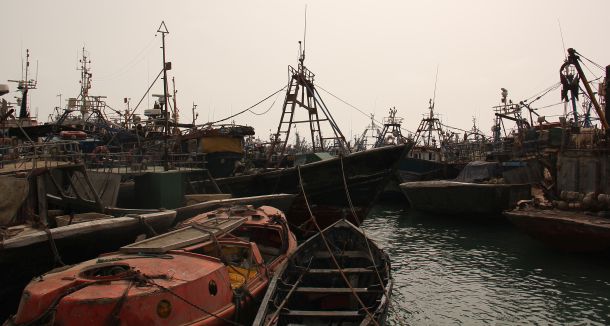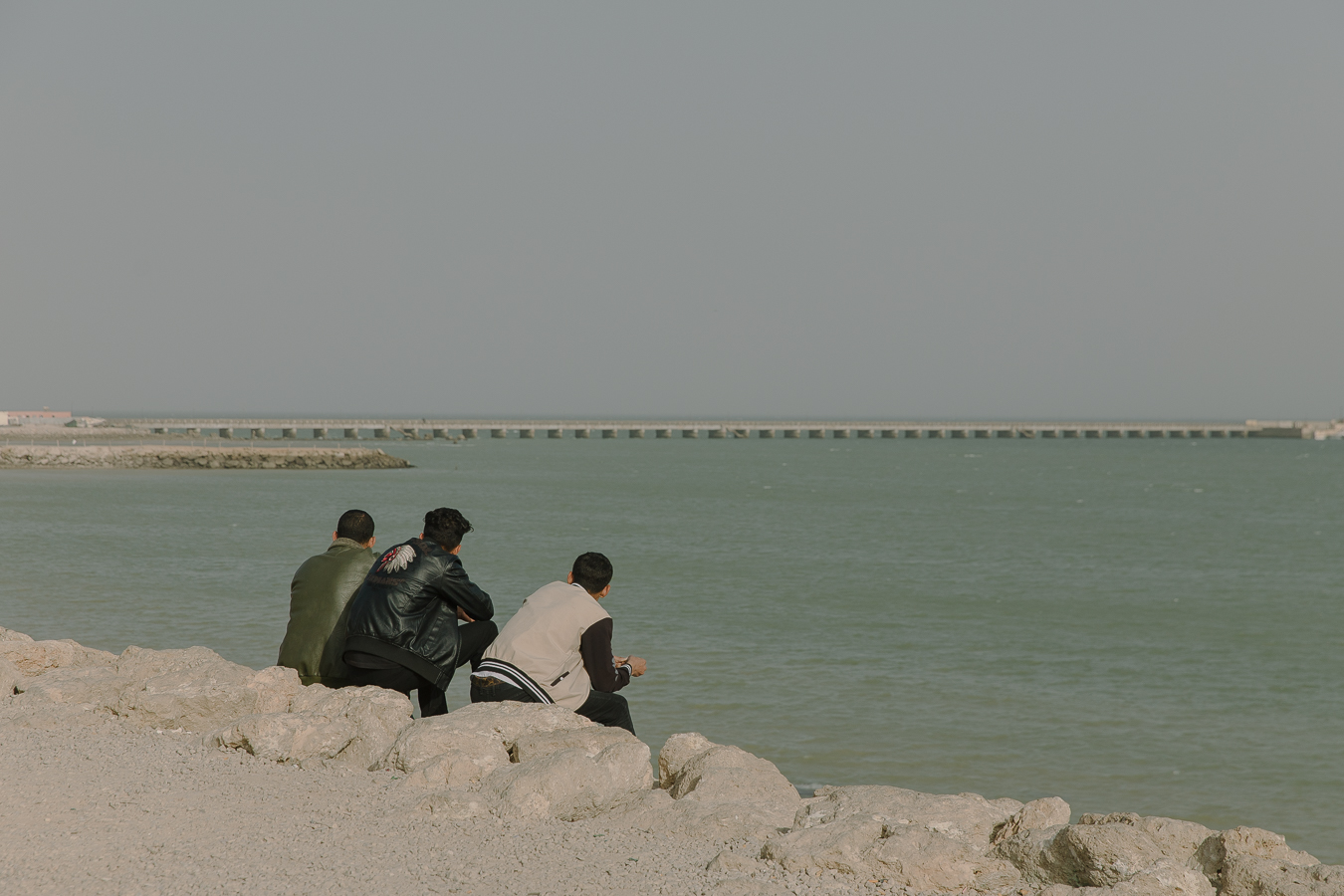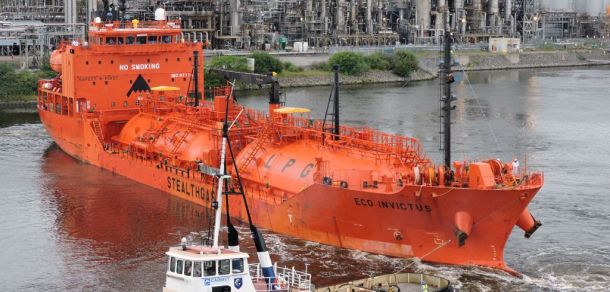
Nearly all petroleum that arrived in occupied Western Sahara in 2022 originated from refineries in Spain.
Photo: The chemical tanker Cedar (IMO 9426491), seen in the port of Agadir on 22 September 2022. The ship had just completed a transport of petroleum from CEPSA's terminal in Carteya Guadarranque into El Aaiun in occupied Western Sahara. @vovashap/Shipspotting.com (photo in high resolution).
The Spanish oil companies Cepsa and Repsol account for at least 85% of all petroleum products that arrived occupied Western Sahara during the calendar year 2022.
Western Sahara Resource Watch (WSRW) analysed 123 shipments into the territory last year. Nearly all the petroleum came from Spain, the rest from ports in Morocco.
WSRW estimates the volume to be half a million tonnes.
The calculation for that amount is based on the travel routes of 35 different vessels that are highly likely to have transported such cargo into the territory during that year. The vessels stopped a total of 85 times in El Aaiún and 66 times in the port or anchorage area of Dakhla. Some of the import incidents included calls into both two ports.
Petroleum products are essential for Morocco to maintain its occupation of the territory. The petroleum products arriving in Western Sahara serve primarily to fuel vehicles, engines and vessels that take part in the illegal plunder of the territory, or are used for military purposes by the Moroccan army.
The total quantity of oil transported into occupied Western Sahara during 2022 is estimated at 502,000 tonnes. The calculation is based on the size of each vessel and its shipment route. In addition, the changes in draught have been taken into account. A draught explains the distance from the waterline down to the bottom of the vessel, and changes in this distance explain a vessel’s discharging or loading.
WSRW asked Cepsa to comment on the shipments in a letter in 2022. The company responded that “we supply hydrocarbons for distribution in the Saharawi territory, which are fully permitted”. The company noted to WSRW that “we are not commenting further”, when asked which country's laws and institutions they referred to. WSRW wrote to Cepsa in 2014, 2017 and 2018. A short response from the company on 8 November 2018 failed to answer the questions on that same point.
WSRW wrote to Repsol on 21 February 2022. The letter was not responded to.
The volume of petroleum products shipped into Western Sahara in 2022 is similar to the one that WSRW observed for the years 2021 and the year 2020, but lower from what WSRW reported for 2019. The decrease from 2019 to 2020 can potentially be attributed to a far more conservative WSRW methodology for calculating cargo onboard the vessels, applied from the year 2020 onwards.
As in previous years, the most involved shipping company, by far, is the French company Sogestran, controlling the tanker Mayoury. In 2022, the ship accounted for 29% of all petroleum shipped into the territory. The company has not responded to any WSRW/APSO letters since 2017, including letters from 2020 and 2022.
An important "Moroccanisation" of the fleet of Swedish company Wisby Tankers has taken place during the last years, as two Swedish owned, Norwegian flagged ships have become Moroccan. In September 2022, the vessel Wisby Teak became Moroccan owned and changed name to Argan. In 2021, the same thing happened to the vessel Wisby Cedar which was renamed to Cedar. The two ships have continued on the same routes after the ownership/flag change. Wisby Tankers did not respond to letters. The Swiss organisation terre des hommes wrote the new manager of Cedar and Argan, ABC Maritime AG, on 14 March 2022, without response. A third and last vessel in the historical Wisby fleet, Wisby Argan, remains in Swedish/Norwegian hands, and made only one shipment to Western Sahara during the year.

It is possible that the overview presented here is not complete, and that certain arrivals have escaped WSRW’s attention.
Cepsa has been behind the largest transports, from its refineries in Algeciras, Carteya Guadarranque, Huelva, Tenerife, whereas Repsol has shipped from the port of Cartagena Escombreras. It is not yet known to WSRW which company is behind the exports from Las Palmas to Western Sahara. WSRW estimates that both Cepsa and Repsol are each behind approximately 42-43 percent of the imported petroleum products.
In addition to transports from Cepsa's and Repsol's refineries in Spain, there were also possible exports from Jorf Lasfar and Tanger in Morocco.
The 35 petroleum tankers involved in the transports for the calendar year 2022 are: Alice Theresa, Althea, Anfa, Anuket Ruby, Argan (ex-Wisby Teak), Atlantis Alhambra, Atlantis Andaman, Azra S, B.Atlantic, Bice Amoretti, Bomar Mercury, Bravo, Cedar, Desna Star, Ecoglory, Eva Dp, Frona, Ft Portoria, Gazela, Ginostra M, Guroni, Habip Bayrak, Hitra, Irene Dp, Ivyan, Kolin 9, Mayoury, Med Adriatic, Med Serhat, Mrc Lina, Sen Arche, Stella Polaris, Tingis, Vs Lara and Wisby Argan.
The tankers fly the following flags: Malta (16), Morocco (4), Marshall Islands (3), Italy (2), Liberia (2), Spain (2), France (1), Cyprus (1), Denmark (1), Gibraltar (1), the Netherlands (1), Norway (1), Panama (1), Turkey (1).
WSRW has made a similar overview of petroleum exports for the calendar years 2021, 2020 and 2019.
Since you're here....
WSRW’s work is being read and used more than ever. We work totally independently and to a large extent voluntarily. Our work takes time, dedication and diligence. But we do it because we believe it matters – and we hope you do too. We look for more monthly donors to support our work. If you'd like to contribute to our work – 3€, 5€, 8€ monthly… what you can spare – the future of WSRW would be much more secure. You can set up a monthly donation to WSRW quickly here.
First overview of gas imports into occupied Western Sahara
50,000 tonnes of liquified gas arrived in occupied Western Sahara last year, according to our first overview of this key trade.
New controversial energy infrastructure to be built in Western Sahara
The Moroccan government has opened for a relatively large tender in Dakhla.
Canary trade mission to legal minefield
A publicly organised mission will take Canary companies into occupied Western Sahara later this month.
Norwegian gas transport avoids Western Sahara at last minute
A vessel transporting Norwegian gas was supposed to arrrive in occupied Western Sahara tomorrow, but has now steered away last minute, as ordered by the exporter in Norway.



